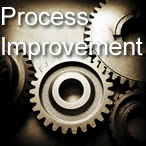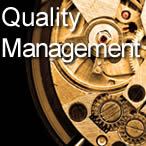Process Improvement – Essential Steps
Improving business processes requires companies to first understand their existing processes. While this sounds obvious, senior management will often stipulate that a particular process or series of processes need to be improved based upon their understanding of these processes. However, their understanding and the reality at the coal-face, are more often than not, miles apart.
In order to improve any operational process and provide greater customer value, the process first needs to be understood, and the easiest way to understand a process is by drawing or mapping it. So, step 1 is to map the existing process and gain consensus that “this is how we do it”, i.e. the “current” state. Once you’ve mapped your “current” state, it is essential to then map your “future” and “ideal” states, where the former is how you envisage the revised processes to be in the short to medium term. The “ideal” represents the ultimate long-term goal (perfection), which should serve as a guide or reminder for future improvement efforts. Read more →






